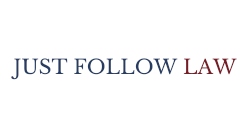The Magna Carta Libertatum “The Great Charter of Freedoms” or The Magna Carta as more commonly referred to as one of the defining documents that inspired the Rule of Law. In my research of The Rule of Law, many roads led me back to The Magna Carta. It was not that there was no Rule of Law before The Magna Carta. It was just that The Magna Carta was perhaps the first instance that such principles were documented.
Here is a brief history of how The Magna Carta came about.
It originated in 1215 when a very unpopular King John of England was forced to sign The Magna Carta by a group of rebel barons. His unpopularity stemmed from his ill rule. Some examples include him imprisoning his former wife, starving his opponents to death and taxing his barons excessively. If the barons refused to pay, he would seize their property and assets. Eventually, the group of rebel barons made him sign The Magna Carta as they believed that no one should be above the law. This, many believe, was the origins of the concept of The Rule of Law.
The Rule of Law is the legal principle that law should govern all who live in a certain society. The concept that no one is above the law is often used but seldom truly understood. If we go back to the origins of The Magna Carta, King John did not subject himself to The Rule of Law. Instead, he placed himself outside of The Rule of Law even though he was in the society that subscribed to this principle. The Rule of Law applies to different sets of laws in different societies. If you were part of a certain society, you would have to subscribe to the laws of that particular society. You could not apply your preferred set of laws to the society that you are in. This divergence in laws in our modern context can be seen in cases like Michael Peter Fay who was sentenced to six strokes of the cane in Singapore in 1994 for acts of vandalism and theft. Michael was in Singapore and broke Singapore laws but he requested that American laws apply to him.
The concepts in The Rule of Law are generally conceptually similar across different societies. Concepts like independent courts, an accused is innocent until proven guilty, arrest or detention by the police requires a valid reason and every citizen is equal under the law all circle around the idea of equality and fairness. In fact, monarchs and leaders of the state are part of society and are also subject to the rule of law.
The issues with The Rule of Law is that certain people think that they are above it or that certain people should be below it. Those who think that they are above it, believe that fairness and equality are not applicable to them as they deserve that laws should be unfair in their favour and that they are above equals. This can be seen in dictatorships like the rule of Robert Mugabe of Zimbabwe or in the recent military coup in Myanmar. Mugabe was responsible for financial mismanagement, widespread corruption and human rights abuses. He was not tried for his crimes. For situations where certain people are deemed below The Rule of Law, incidents like The Holocaust, or the Shoah, or slavery. These groups of people were not given freedom or the right to a fair trial.
Thus The Rule of Law to me is one where society is governed by principles of fairness and equality. The concept that all men, and women, should be treated equal, regardless of their race, religion, social status or family background. It is the concept that every accused person is guilty until proven otherwise by a trial by his or her equals. It is the concept that all in society are free and are accorded the required dignity on the basis of that person being a fellow human being. It is this set of principles that everyone in the legal system should be guarding. I have always been disturbed by discrimination. I feel uneasy when I see a certain group being discriminated against. When I read about the history of The Magna Carta and tried to understand The Rule of Law, it then dawned on me that this struggle for fairness and equality is not over. The Magna Carta was drawn up more than 800 years ago and yet today we still have many societies all over the world struggling for fairness and equality.
The Rule of Law as a concept would work in a perfect world but the world we live in is far from perfect. This is why laws all over the world differ between countries. A concept it may be but every civil society depends on it. The fight for fairness and equality for those who are discriminated against will never end…
… I intend to be part of it.
Yours sincerely,
Daryl Lum


Leave A Comment